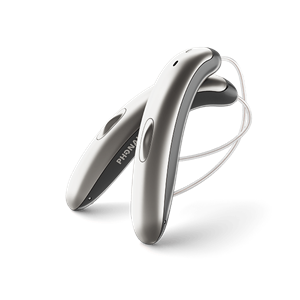Does weather affect my tinnitus and if so how? | Connect Hearing

Does weather affect my tinnitus and if so how? | Connect Hearing
10 min.
Publication Date: December 21, 2021
Tinnitus is a condition characterized by the perception of sound when there is no distinguishable external source for that sound.
What is tinnitus?
According to the National Organization for Rare Disorders, tinnitus affects approximately 10 percent of the general population, which means people of all ages can be impacted by the condition. Although tinnitus is often referred to as "ringing in the ears," the associated sounds can also be described as hissing, chirping, crickets, whooshing, or roaring sounds.
Tinnitus can affect both men and women and can be present in one or both ears.
According to the World Health Organization, tinnitus often results from acute or chronic noise exposure or may stem from other underlying pathologies and various illnesses.
Tinnitus can be a serious nuisance that may negatively affect someon's well-being and peace of mind. But there is also a hidden side of tinnitus: it may be affected by the weather and other atmospheric conditions.
How does weather affect my tinnitus?
According to HealthLinkBC, rapid changes in environmental pressure may contribute to tinnitus. It might get worse when it rains, for example. The National Institutes of Health (NIH) - part of the U.S. Department of Health and Human Services - is the nation's medical research agency that has produced interesting research in the area of hearing loss and tinnitus. For instance, one NIH study published in 2017 reports that lower sea level pressure is associated with tinnitus. Changes in atmospheric pressure often happen when you fly or when spring comes.
The same study also points out an association between tinnitus and Ménière's Disease. A disorder of the inner ear, Ménière's Disease, can lead to hearing loss, dizziness or vertigo, and aural fullness (pressure). Atmospheric pressure below 1013.25 millibars causes a 23 percent spike in the likelihood of tinnitus due to Ménière's Disease.
The correlation between tinnitus and atmospheric pressure
A compromised vestibular system, the part of your inner ear that controls balance, may explain the correlation between atmospheric pressure and tinnitus. The fluid in your inner ear can make you sensitive to changes in air pressure. When it drops suddenly, a reaction in your ear can cause your tinnitus to flare up.
In the 2017 NIH study, warmer temperatures were correlated with lower levels of tinnitus, and interestingly also with improved hearing. However, the increased wind is associated with more severe cases of tinnitus (if you disregard all other weather factors). Humidity may also be associated with tinnitus.
How does cold weather affect my hearing?
Lower barometric pressure, warmer temperatures, high wind, and humidity are not the only weather-related variables related to tinnitus. According to the educational resource website HearingAids.com, when the weather outside is very cold, you may develop a condition referred to as exostosis or bone spur. Exostosis is the formation of new bone material on the surface of a bone. It is often to blame for cases of mild tinnitus because the growths make it difficult for sound to travel through the ear. Exostosis-related tinnitus is also referred to as "surfer's ear" due to its prevalence among surfers who spend long periods in cold waters.
If you develop tinnitus, there are treatments and coping methods that can help. In most cases, the treatment involves counseling combined with either hearing aids or sound maskers. See a hearing care professional to find out more, and remember that sometimes it actually is the weather that's to blame.
Get your hearing checked
If you or your loved one are experiencing a change in hearing, getting tested by a hearing care professional can provide the information you need to make the best decisions for your hearing health and improve the way you interact with the world.
To explore your options, book an appointment to speak with one of our hearing care professionals today!
The information contained in this article is for educational and informational purposes only. You should not use the information as a substitute for, nor should it replace, professional medical advice. If you have any questions about your health, you should always consult with a physician or other health-care professional.
Author
Connect Hearing Canada



